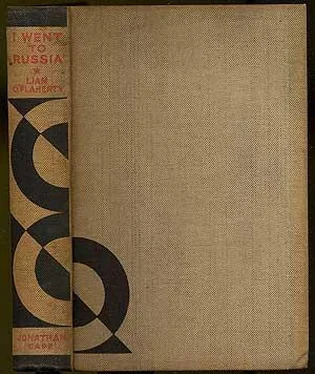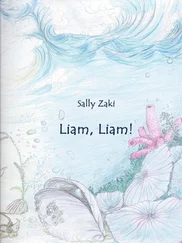Liam O'Flaherty - I Went to Russia
Здесь есть возможность читать онлайн «Liam O'Flaherty - I Went to Russia» весь текст электронной книги совершенно бесплатно (целиком полную версию без сокращений). В некоторых случаях можно слушать аудио, скачать через торрент в формате fb2 и присутствует краткое содержание. Город: London, Год выпуска: 2011, ISBN: 2011, Издательство: Bloomsbury Publishing, Жанр: Публицистика, на английском языке. Описание произведения, (предисловие) а так же отзывы посетителей доступны на портале библиотеки ЛибКат.
- Название:I Went to Russia
- Автор:
- Издательство:Bloomsbury Publishing
- Жанр:
- Год:2011
- Город:London
- ISBN:9781448205592
- Рейтинг книги:5 / 5. Голосов: 1
-
Избранное:Добавить в избранное
- Отзывы:
-
Ваша оценка:
- 100
- 1
- 2
- 3
- 4
- 5
I Went to Russia: краткое содержание, описание и аннотация
Предлагаем к чтению аннотацию, описание, краткое содержание или предисловие (зависит от того, что написал сам автор книги «I Went to Russia»). Если вы не нашли необходимую информацию о книге — напишите в комментариях, мы постараемся отыскать её.
I Went to Russia — читать онлайн бесплатно полную книгу (весь текст) целиком
Ниже представлен текст книги, разбитый по страницам. Система сохранения места последней прочитанной страницы, позволяет с удобством читать онлайн бесплатно книгу «I Went to Russia», без необходимости каждый раз заново искать на чём Вы остановились. Поставьте закладку, и сможете в любой момент перейти на страницу, на которой закончили чтение.
Интервал:
Закладка:
‘I cannot imagine a social revolution from within taking place in England,’ I replied. ‘The English know perfectly well they would lose their Empire and become an over-populated island, a third-rate nation, condemned to a vassal decadence like the Egyptians under Rome. But a revolution from without. . . . That is possible. Communism by conquest is possible, even in England. Already, as you say, the Lion and Unicorn of England is confronted with the Bolshevik Sickle and Hammer in India and elsewhere in the East.’
He looked at me still more closely and his eyes almost closed.
‘So you think that the Russian Revolution is a movement of Russian nationalist expansion.’
‘Not exactly.’
He went on looking at me closely and I began to feel uncomfortable. Again I had the feeling that I was an alien on this ship, being watched by the ship’s captain, who was probing me in order to find out whether I was a spy, an agent of the enemy, Europe, or just a harmless traveller come to see the wonders of the Soviet lands. I again felt that no matter how much I wanted to become a Bolshevik, no matter how much I admired their ideas, their youth, their virility, I must remain outside; or even if brought in, baptised in their faith, grafted on their society, I must still remain suspect and in reality an alien, because a different religion and culture had become part of my being.
Now I saw the captain as a great Inquisitor, guarding the ship and I clearly understood that he and his ship and his crew were all members of a band of scouts, sent out into Europe to examine the strong posts of the enemy.
He moved away without salutation. I was left alone in the room with the first mate. It was a relief to be left alone with a shallow and harmless fellow like the first mate. The mate began to speak at once.
‘How do you like third mate?’ he said, with a grin.
‘She’s not very pretty,’ I said.
‘No,’ he said. ‘Nobody likes her much, except Chief Wireless. I no like women on ships. Once they give fat Jewish girl as apprentice. She member of Party. They say I must take her. I say no. Give me my wife. They say no wife, take fat Jewish girl. She learn Marine Law. So, so. She member of Party. Pull strings. Perhaps love important bureaucrat. All right. She come aboard. All the time she wants love with everybody. I no like. She come in my cabin. I was captain. She says does captain want tea. I say no. She says captain let her sit and talk. I say no. She cries and say she sad and throw herself on my bed, I say go away. Yes. All right. Very good. I want maybe but I know perhaps later I pay. She have poor dress. She want maybe to make love and then I have to buy dress. If not she go to big bureaucrat and say I love her and give nothing. So. Very bad. Now I go sleep. This ship sad., Very lonely.’
I went out on deck, in a state of high nervous tension. I felt that this ship was driving me mad, or else that I was unable to endure close contact with this mighty force, this Bolshevism. I could not feel at ease. Either I was watched by the captain, or by one of his crew. It was a delusion perhaps, a waking nightmare; but I felt it. And I felt a criminal for being hostile to this beautiful and healthy force.
As I expected, as soon as I got on deck, the doctor approached me and took charge.
‘Come and see my hospital,’ he said.
I submitted. I had not enough energy to resist. He showed me his hospital, which was perfectly equipped, with an operating room and a room for accouchement. He ranted about the Soviet hygienic laws. He talked about his work in liquidating medical ignorance among the crew. And all the time I could only see the captain’s sombre eyes and the mate’s lascivious grin and the ship prowling about among European cities, collecting information for the red hordes that were massing and singing their battle songs on the steppes. Woe to Europe! He brought me to the quarters of the crew and showed me how they ate and slept and played musical instruments and read books and fired shots from the rifles that hung in their mess room and meditated before the image of the great Lenin, like any pious Buddhists or Moslems or early Christians.
‘You will notice,’ he cried in triumph, ‘that their quarters are as good as the quarters of the officers. They eat exactly the same food. They are armed in accordance with the law for the militarisation of the proletariat, to protect this ship, which is the property of the proletariat, against counter revolution among the officers and against the spies of the bourgeoisie. They are reading books on Marxism and the Materialistic Conception of History, to prepare them for the great struggles of industrialisation of the Soviet Union, the liquidation of illiteracy and the overthrow of world capitalism. They are the real vanguard of the revolutionary proletariat.’
He showed me the great room in the men’s quarters where the meetings of the ship’s Soviet were held.
‘Here,’, he cried proudly, ‘I shall bring you to show you how all come here and make plans to better ship rule, save oil, save work, organise closer co-operation, all for one thing. Victory of world proletariat.’
And after two hours he left me exhausted on the after-hatch, while he went to dress an ulcer on Dunya’s hand. With folded arms and head fallen forward, I tried to rouse myself and master the situation. I tried to tell myself that I had set out on this journey, not only for the trifling purpose of writing a book and earning some money, but also, with the more important idea of finding a new purpose in life, something to which I could attach myself, a community as vital and as worthy of great poetry as Elizabethan England. Why did I remain hostile?
Before I could reason with myself I was again approached, this time by a tiny individual, who had the face of a Jew and wore the jersey of a seaman in the French navy, an affair with narrow blue and white stripes horizontally, on the cotton fabric. He bowed and smiled. I looked at him sombrely, thinking:
‘I have had enough of these blighters for one day. What’s this chap going to show me? By the look of him he is one of the engine room staff. He‘ll take me down below and show me the superiority of Soviet engine rooms.’
‘Salut!’ he said. I am told you speak French. I am French.’
‘Indeed!’ I said.
He sat down beside me, lit a cigarette and began to talk without further invitation. Now I was subjected to a different type of Bolshevik, an assimilation from abroad. This fellow was undoubtedly European, a Parisian Jew, with all the pertness of the gamin, intelligent, quick, alert, subtle, amusing, cunning in conversation, a rascal. Talking rapidly, he asked me to forgive him for being so badly dressed, but as one-third of everybody’s wages was abducted for the Five Year Plan and people were paid in roubles which they were not allowed to export or change into foreign currency, and as there were no clothes to be bought in Russia, it was impossible for people to be properly dressed. In the Soviet Union I would find a great deal that was good and a great deal that was bad. It was true that the condition of the working class, particularly on this ship, was good as regards working hours, labour laws and food, but it was bad in other respects. There was so much envy, so much jealousy, so much spying and intrigue and tittle-tattle, that life was sordid. Then this hatred of joy, of music, of love, of the dance, of drinking. What do people want? To turn the world into a Scotch Sunday? For himself, he had been the object of misfortune, being now an oiler, although he was by right a wireless operator.
‘Have you read the book of Panistrati?’
‘No. I never heard of him.’
Almost numb with exhaustion, I listened to the insinuating conversation of the little Jew, and enjoyed it as one always enjoys the speech of these clever little tricksters, conversation that was half serious, half humorous, interspersed with bawdy jokes and anecdotes from Parisian life, the life of the street, of the brothel, of the cabaret. He spoke like a counter-revolutionary, yet I knew he was not one. Neither was he an agent sent to sound me, but just one of these born gossips, who love to curry favour with the multitude by giving voice to whatever is likely to please, or to be interesting. Such people invent conspiracies, plots and events of the most startling import, for the sole purpose of attaching importance to themselves. They love to be the victims of injustice in order to inspire pity, for as a general rule, they are tiny of stature and have not the sense of dignity which attaches itself by nature to men of normal size. The type is common in Dublin, so it was not strange to me. How often have I been buttonholed in the street by dismissed civil servants, bankrupt business men and decayed people of all description, hauled into a tavern and then told in an awed whisper:
Читать дальшеИнтервал:
Закладка:
Похожие книги на «I Went to Russia»
Представляем Вашему вниманию похожие книги на «I Went to Russia» списком для выбора. Мы отобрали схожую по названию и смыслу литературу в надежде предоставить читателям больше вариантов отыскать новые, интересные, ещё непрочитанные произведения.
Обсуждение, отзывы о книге «I Went to Russia» и просто собственные мнения читателей. Оставьте ваши комментарии, напишите, что Вы думаете о произведении, его смысле или главных героях. Укажите что конкретно понравилось, а что нет, и почему Вы так считаете.












